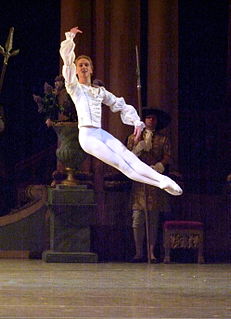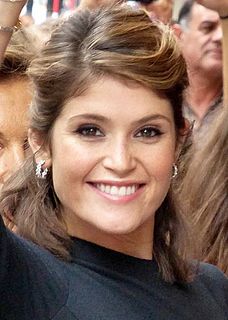A Quote by Charlie Kaufman
And also the idea of not making it apparent that it's different from the rest of the film, even though there are visual differences, the audience is supposed to think that they are with him when he wakes up in the morning.
Related Quotes
I've been interested in art and fashion for as long as I can remember because they are so visual. I am fascinated by the idea of visual creation from the ground up, which is a challenge in ballet when the audience has seen every show of yours, every other principal that you've shared a role with, and every different production.
Once we actually have the production script after many rewrites, at that point is when I start to decide what the look and colors will be. I work like a painter, even though I'm working in three dimensions. I'm working with chairs. I'm working with walls. But even things like the floor or the walls that people might think are not important, they actually do influence the visual look of the film. These are also things that I have to think about.
I like the saying: "The world is as you are." And I think films are as you are. That's why, although the frames of a film are always the same - the same number, in the same sequence, with the same sounds - every screening is different. The difference is sometimes subtle but it's there. It depends on the audience. There is a circle that goes from the audience to the film and back. Each person is looking and thinking and feeling and coming up with his or her own sense of things. And it's probably different from what I fell in love with.
Rain Man certainly didn't test really well. If you look at it carefully, you have a disease autism they didn't understand back then, they didn't know in the test audience whether it's okay to laugh or not laugh, because it's a film that's done in a way where, "Well, maybe I'm not supposed to laugh." At the end of the film, Dustin Hoffman gets on the train and doesn't even acknowledge his brother. Not even a glance, nothing. That's why the studio said, "Can't you just have him look at Tom Cruise at the end of the film?"
I had this idea for a long time to make a film about a poet in Paterson named Patterson. I wanted him to be working class. Eventually I thought a bus was a perfect visual way to move him, to drift him through the city, to have a measured kind of routine lifestyle. And all these things kind of congealed into the film "Paterson" eventually.
I think one of the most important differences between us is that you are excellent at living in a way that is commensurate with your values, whereas I am not. For instance, I didn’t recycle until I watched An Inconvenient Truth and I’m still sort of iffy on it. And also, I didn’t vote in 2000, even though I could have voted in Florida *hits self on head repeatedly* Ahh George Bush! It’s all my fault! God! So stupid! *sigh* Let’s change the subject. Also, we have vastly different happy dances.







































